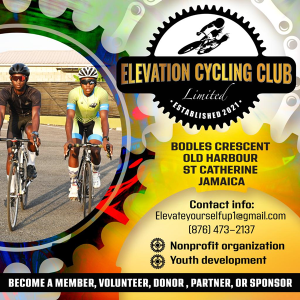National Icon status raises more questions

The Government of Jamaica offers several significant categories of national awards, including:
1. Order of National Hero
2. Order of National Icon (New).
3. Order of the Nation
4. Order of Excellence
5. Order of Merit
6. Order of Jamaica
7. Order of Distinction
8. Badge of Honour
9. Medal of Honour
These awards are given to individuals who made significant sacrifices to contribute to nationhood in areas such as public service, arts and culture, science, and more.
When the category of National Icon was announced, I figured this was a shift to appease Jamaicans at home and abroad following the long-standing outcry to award Louise Bennett Coverley "Miss Lou" and Robert Nesta "Bob" Marley National Hero status.
It came as no surprise to see in CNW, a Miami-based Caribbean Newspaper, that Louise "Miss Lou" Bennett-Coverley and Robert Nesta "Bob" Marley are poised to become the first Jamaicans to be honored with the newly established Order of National Icon as announced by Prime Minister Dr. Andrew Holness. However, this new category is crafted to achieve a mutually beneficial outcome: the authorities meet their objectives. At the same time, the general public is satisfied by the elevated status of these two legendary Jamaican figures. The announcement failed to generate much enthusiasm on social media, indicating that people either didn't take notice or that this wasn't the anticipated result.
After the award announcement last Monday, I felt motivated to delve deeper into the topic. My goal is not only to form a more informed opinion about the selection of these two individuals as national icons but also to comprehend the reasoning behind distinguishing national icons from national heroes.
According to my thorough online research, it is widely accepted that a national hero in Jamaica is recognized as someone who has made substantial contributions to their country, typically through acts of courage, leadership, or sacrifice. These individuals are honored for their significant influence on the nation's history, identity, or independence, as their deeds have had a lasting impact on the country and its people.
Conversely, from the Oxford dictionary, I gleaned that a national icon is an individual widely recognized and revered within a specific country, embodying its values, culture, or history. This individual symbolizes the spirit and aspirations of the nation and is frequently associated with its heritage. National icons may include political leaders, cultural figures, artists, or sports personalities who have profoundly influenced national consciousness and represent the country's ideals. The article did not describe the assessment tool for granting individuals the Order of National Icon. However, the Prime Minister in the CNW article pointed out that the legal process to formalize the recognition will be underway soon.
The Prime Minister recently remarked that the reason Miss Lou and Bob Marley received national icon awards is because "Miss Lou's efforts in promoting Jamaican Patois and folk traditions have established her as a pioneer of our national identity, while Bob Marley's music transcends borders, positioning him as an international ambassador of reggae — a symbol of resistance to oppression and a beacon of unity and love." He further noted, "Their impact on the world stage is immeasurable, and this recognition honors not only their legacies but also the indomitable spirit of Jamaica."
While I agree with some aspects of Dr. Holness's views, many believe these two individuals' impact extends beyond merely "promoting Patois" or "serving as a reggae ambassador." Instead, their influence resonates more closely with global perceptions.
Let's take a moment to consider our national heroes:
- - Marcus Garvey
- - Norman Manley
- - Alexander Bustamante
- - Paul Bogle
- - George Washington Gordon
- - Nanny
- - Sam Sharpe
A brief review of each hero's contributions will reveal how they align with these broader definitions. Paul Bogle, Sam Sharpe, George Washington Gordon, and Nanny deserve recognition as national heroes for their significant contributions through courage, leadership, or sacrifice. Meanwhile, Norman Manley and Alexander Bustamante are celebrated for their profound impact on the nation's history, identity, and independence, with lasting effects on the country and its people.
Paul Bogle is commemorated for his significant role in the Morant Bay Rebellion of 1865, a landmark event in Jamaica's ongoing struggle for justice and equality. Bogle's leadership in advocating for the rights of the oppressed and his relentless fight against social injustice has solidified his status as a national hero. His legacy and George William Gordon's inspire Jamaicans and individuals worldwide. Both men sacrificed their lives for the advancement of Jamaica.
Similarly, Nanny and Sam Sharpe met their fates while striving to improve the lives of their countrymen and women, championing the fight against slavery and colonialism. Sam Sharpe was executed on May 23, 1832, in Montego Bay for his leadership in the 1831 Christmas Rebellion, also known as the Baptist War, which was a pivotal slave revolt in Jamaica. Meanwhile, Nanny, a leader of the Windward Maroons, symbolizes resistance against British colonialism in Jamaica. Although legend suggests she died by execution, historical records are scarce, and a definitive account of her death remains elusive.
Norman Manley and Alexander Bustamante played pivotal roles in negotiating Jamaica's independence from Britain. Despite their differing political ideologies, their activism and efforts were instrumental in securing Jamaica's sovereignty in 1962, when the nation became an independent member of the Commonwealth.
On the other hand, Marcus Garvey is celebrated in Jamaica as a national hero for his pivotal contributions to Pan-Africanism and Black nationalism, as well as his role as an international political leader and activist. Although Garvey's ideas and legacy significantly influenced Jamaican nationalism and independence movements, he was not directly involved in the events leading to Jamaica's Independence in 1962, having passed away in 1940, more than two decades earlier. Furthermore, he did not make personal sacrifices for the advancement of Jamaica itself. Garvey's global impact and contributions are broader when compared to the other six individuals recognized as national heroes — figures who made substantial personal sacrifices or demonstrated exceptional leadership in pursuing nationhood. The influence of Marcus Garvey can be more closely likened to national figures such as Michael Manley and Bob Marley. Nevertheless, Marcus Garvey remains a prominent figure among our seven national heroes.
Let us now consider the two individuals who were recently awarded National Icon status. How do they differ from our National heroes?
**Bob Marley:**
Bob Marley's musical influence has had a profound global impact, promoting messages of love, unity, and social justice. His work and legacy have established him as a cultural icon. He became a Jamaican and Rastafarian cultural symbol through reggae music, influencing music, fashion, and lifestyle worldwide. Additionally, Bob Marley's music serves as a form of social activism, advocating for peace, equality, and the rights of the oppressed, particularly within the Jamaican and African diaspora.
**Louise Bennett:**
Louise Bennett Coverley, commonly known as Miss Lou, was a prominent Jamaican poet, folklorist, and educator who significantly impacted the nation. She was pivotal in popularizing Jamaican Patois (Creole) as a form of artistic expression and communication. Miss Lou's work promoted and preserved Jamaica's cultural heritage and identity and extended beyond poetry into theatre, radio, and television, solidifying her influence on Jamaican culture and national consciousness. Furthermore, her advocacy for recognizing Jamaican Patois as a legitimate language contributed to validating and appreciating local linguistic diversity.
The argument presented in this article suggests that if Marcus Mosiah Garvey, our first national hero, were assessed using the same criteria applied to Bob Marley and Miss Lou, he would today be considered a national icon rather than a national hero. This is due to the evidence indicating that he does not hold the same status as the other six national heroes. This raises important questions about the criteria used to grant National Hero status to Garvey and whether these differ from those applied to Miss Lou and Bob Marley. This concern explains the public's apprehension regarding not recognizing them as new national heroes. It raises questions about the creation of a new category that offers those icons less prestige than that of national heroes.
Leo Gilling, PhD(c), is a Diaspora Strategist & Engagement Advocate; and Chairman, Jamaica Diaspora Taskforce Action Network (JDTAN). Send feedback to leogilling@gmail.com or editorial@oldharbournews.com
Old Harbour News is a community-based online news media outlet based in Jamaica with more than 300,000 unique visitors since 2013. However, we are soliciting your support to continue provide independent journalism and unique stories tailored just for you. Your contribution, however small it may be, will ensure our service to you remain independent and grow to serve you better. Click the DONATE BUTTON now to support Old Harbour News. Thank you.




























